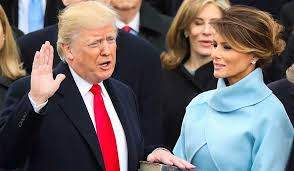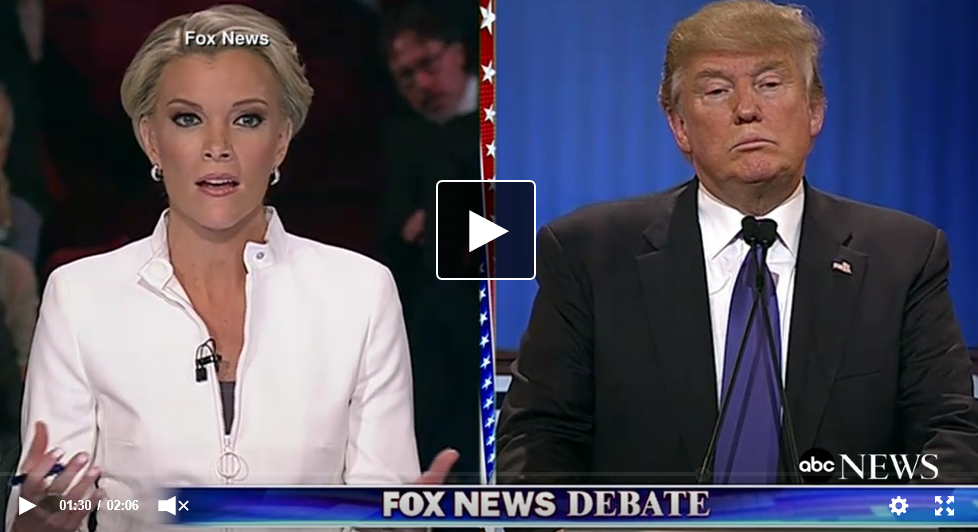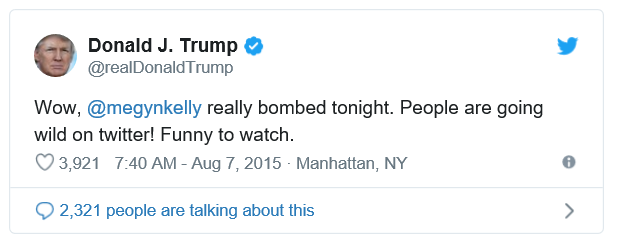Provide a brief description of the leadership example you have selected and explain why you have done so. Provide your sources of evidence in an appendix to the TMA.
For the purpose of this TMA, I have chosen to focus on Donald Trump (Appendix A shows an image of Donald Trump’s Inauguration as US President). Although Trump is a well-established business man and ‘celebrity’, I have decided to research and discuss Trumps leadership solely in his Presidency. Trump is a current figure and is never too far from a media storm therefore making him very easy to research. When I hear the words leadership, identity and power, Trump is one who springs to mind immediately albeit, not always in a positive light. Donald Trump is one of the few presidents to have won his presidency election whilst losing the popularity vote (En.wikipedia.org, 2019). Analysing Trump as a leader within the respected areas of identity and power will be both interesting and enlightening for me. Personally, I find it a challenge to think of any positive connotations when I think of Trump but by choosing him for the purpose of this TMA, I am challenging myself to develop my way of thinking to be more critical in my analysis. I feel that by using Trump as my leadership example, I have plenty of scope to integrate evidence together with theory from Block 4 in order build a strong argument.
Analyse the leadership example in respect of identity and power using two concepts drawn from Block 4.
For my analysis I have chosen to focus on the concept of ‘preoccupation with the self’ coupled with the concept of ‘relational view’.
Narcissism aka preoccupation with oneself, is defined as an individual being ‘extremely self-centered with an exaggerated sense of self-importance: marked by or characteristic of excessive admiration of or infatuation with oneself’ (Merriam-Webster, 2019). It is evident that we now live in a society that is becoming increasingly preoccupied with individualism, for example the ‘selfie’ trend. Pierre (2016) argues that concerns with the self, reflect a ‘narcissism epidemic’ and as a result some organisations have redesigned their spaces to meet this demand or to regulate its use. (See Appendix B – Brighton bench moved to facilitate the taking of selfies)
Get Help With Your Essay
If you need assistance with writing your essay, our professional essay writing service is here to help!
After researching narcissism for the purpose of this block, I have found that Donald Trump is, in my opinion, a textbook narcissist. Trump has a very grandiose self-image, an overinflated ego and a constant need for attention. Some may argue that describing Trump as a narcissist has become very cliché to the point that the label is somehow now widely accepted. His over-presence in the media keeps Trump in the spotlight, a place where he admits to being most comfortable. It could be said that Trumps narcissistic personality has been somewhat of an attraction to voters. I have found that narcissistic tendencies have their upsides and downsides when it comes to leadership. Perhaps Trump uses his narcissism as a defense characteristic to escape painful truths about himself but to voters who perhaps feel isolated or helpless in this rapidly shifting world, he models a simplistic way to eliminate self-doubt and fear. Such is his confidence in himself. Trump publicly ridicules the opposition and is very quick to attest himself as a winner at the expense of “those losers” (Kettle, 2019). Using tools such as blame, indignation and disdain as weapons it can be seen why such traits would draw in voters.
Criticism to Trump is like a red rag to a bull and quite often he sees it as a personal attack. Such action causes him to retaliate, quite often in a very reckless manner. (Appendix C shows an example of such outbursts in an exchange between Trump and Megyn Kelly of Fox News). Trumps actions, as above supports Pullen and Rhodes (2008) suggestion that there is a link between narcissistic actions and other emotions such as envy and revenge. Stein (1997) suggests that envy is a powerful emotion symbolising feelings of ‘ill will towards another because they make one feel inferior, where they could have an active desire to damage or witness damage being done to another’. Just like narcissistic directors in large companies, of which I have the displeasure of experiencing, narcissists tend to present themselves as natural born leaders and can develop a following solely because of this. The director of a company I used to work for can be compared to Donald Trump as he too is very narcissistic. My superior was a very self-obsessed person, materialistic and arrogant in manner, often found boasting about his wealth in meetings which I found very distasteful. However, others in the company found this bewitching and saw his narcissism as power. Here, we see that the narcissistic manager can be and often is seen as a good leader from the outside. Stein (2013) claims that many leaders do act in ways that are narcissistic. However, herein lies a massive paradox for narcissistic leadership because somewhere along the line, the narcissist could be rejected once his lack of leadership qualities becomes apparent. It could be argued that Trump is overestimating himself, often putting his image over the interests of the public.
My studies have led me to draw a comparison between Donald Trump and Dick Fuld, CEO of Lehman Bros (See Appendix C for an image of Dick Fuld as well as a snippet from the case study outlining his involvement in the collapse of Lehman Bros). There was great omnipotence on Fulds part where he stated that he would ‘reach back from the dead’ to prevent the company being sold. Statements like this are indicative of Fulds delusion of invincibility and inflated sense of power.
Research tells us that narcissistic leaders may lack empathy or sympathy for others as humans, seeing them purely as a resource however Kets de Vries (1984) suggests that ‘narcissistic traits can bring positive benefits to organisations’. In my own experience, the narcissistic behaviours of some superiors brings about a fear factor in their subordinates. Sometimes this fear is enough to drive people to succeed but it is not healthy and can make for a volatile or even toxic working environment.
Another ingredient for a toxic environment is intersectionality. Dictionary defined, it is ‘the complex, cumulative way in which the effects of multiple forms of discrimination (such as racism, sexism, and classism) combine, overlap, or intersect especially in the experiences of marginalized individuals or groups’ (Merriam-Webster, 2019) however, intersectionality as an approach studies the way in which identity categories such as gender, age, race and sexuality intersect. Richardson and Loubiere (2008) suggest that it is important to study intersectionality in leadership as it ‘considers how people have multiple layers and facets of their identity and promotes a discussion about how these facets connect with each other’. Trump somehow promotes intersectionality rather than being targeted by it himself. For example, he is promoting racism and exclusion of immigrants by building the border wall. With this being said, Donald Trump is a successful white American businessman and with his success comes power. It could be argued that Trump won his presidency by making hate intersectional. We see this in Trumps speeches and broadcasts in which he has encouraged sexism, racism, homophobia, anti-Semitism, and hatred. In Trumps willingness to build a wall on the US border with Mexico, he is going back in time if you will, reopening the intricate ecosystem for those who have been historically mistreated and excluded. In doing so, Trump is ‘marking the identities of people he sees as being inferior’ or deviant to him (Laclau, 1994). This coupled with his misogynistic comments in regard to sexual assault which he branded as “locker-room talk” could be observed as Trump characterizing his privilege as a powerful white man (Fisher, 2019). In is using his own position as a ‘wealthy successful white male’ he is alienating those ‘marked’ groups mentioned above. The ‘marking’ of identities is an ‘unequal relationship which is often legitimised through ideas of formal authority and hierarchical leadership’. (Book Ref)
Collins (2012) states that many individuals who make their ascent to the ‘upper echelons of leadership’ do so not only because of their own merit, talent or motivation but because they start with ‘often unrecognised privileges’. I feel that this is a statement that Trump would be dismissive of as he himself, has not experienced the same marginalisation that he inflicts upon others. Just last week Donald Trump addressed a press conference in reference to him arbitrarily declaring a state of National Emergency in order to build the wall at the Mexican border in which he contradicted himself when he said “I didn’t need to do this. But I’d rather do it much faster” (Jeremy Diamond, 2019). This shows that Donald Trump is using his hierarchical and patriarchal power for his own selfish gain. Patriarchy is a concept within relational view which ‘describes an oppressive system that enables men to occupy higher office and exercise more power than women’ (Book Ref) It is no coincidence that the USA have never elected a female president. Schein (2006) believes that it would be naïve of us to say that the days of patriarchal organisation are behind us as Western society still has the ‘think leader – think male’ attitude.
Using at least one concept from Block 4, offer written advice to the leader(s) or related organisation within your leadership example in respect of practicing leadership, incorporating some of the knowledge you have learned about identity and power.
As President of the United States, the world’s eyes are on Trump. He is a man of power and influence but instead of using his power to do good for his people, he seems to be abusing it. Trump is unlike King Canute in that he is arrogant in the belief in his own ability to exercise power over everything. King Canute ordered the waves on the beach to turn back so as not to ‘touch’ his kingdom. My advice to Trump would be to take the ‘zooming out’ approach in order to appreciate the bigger picture. Grint (2005) suggests the ‘by working together we can use and understanding of complexity to make problems and leadership more meaningful and impactful. Aristotle argued that being aware of our limitations and what we cannot ‘control’ is the true meaning of wisdom. This reimagines leadership as something that is less about imposing will, and more about a shared and collective endeavour (Book ref). However, Trump is an anthropocentric character seeing himself as top of the hierarchical chain of life. Calvo (2008) expressed that such ‘belief in human domination can also lead to exploitative and oppressive practices of power’. We see this in Trumps most recent decision to call a state of National Emergency in the USA in order to start the building of the border wall. It is clear to see that Trump is treating everything as a resource, even human beings. I would advise Donald Trump to step back, zoom out and stop taking the world for granted. Trump should broaden his ‘zoom lens’ beyond what he understands to be the boundaries around himself and his fleeting identification within his own nation state. I can see how this may not be without its challenges for a character like Trump. Lack of understanding, appreciation of complexity and resistance to it are all factors in why we sometimes find it difficult to think beyond our immediate surroundings. What Trump needs to understand is that this complexity is like the ‘view from a very powerful camera’. It is not enough to simply stare at a problem through a narrow lens. The more we ‘zoom out’ the more we can appreciate the problem, allowing a broader and deeper insight and view on it. Overall, it would be of benefit to Trump to focus more on relational leaderships in attempt to build relationships with those that didn’t vote for him instead of out casting them.
APPENDIX
(APPENDIX A)

This image of Donald Trump was taken at his inauguration. Also photographed with the President is his wife Melania.
Washingtontimes.com (2017). Donald Trump inauguration drew record online audiences for live video streaming. [online] The Washington Times. Available at: https://www.washingtontimes.com/news/2017/jan/22/donald-trump-inauguration-drew-record-online-audie/ [Accessed 19 Feb. 2019].
(APPENDIX B)

Photo Credit: Peter Bolter
This bench in Brighton was moved to face the road instead of the view out to sea in order to accommodate the ‘selfie’ culture. Members on the council felt that this ‘the perfect opportunity for visitors to share the gorgeous coastal backdrop with their online followers’
ITV Report, (2016) ‘Wrong way’ seaside bench becomes ‘world’s first’ selfie bench’, ITV News. [Online]. Available at http://www.itv.com/news/wales/2016-04-12/wrong-way-seaside-bench-becomes-worlds-first-selfie-bench/ [Accessed 21 Feb. 2019].
(APPENDIX C)

The above image shows Kelly and Trump during the Presidential debate in 2015. In a question directed at Trump, Kelly said, “You’ve called women you don’t like fat pigs, dogs, slobs and disgusting animals.” Trump fired back on Twitter after the debate.

Trump continued to criticize the Fox News host in the days after the debate, telling CNN, “There was blood coming out of her eyes, blood coming out of her wherever.” In an interview with ABC News’ “This Week” two days later, Trump said he meant Kelly’s nose when he said “wherever.”
https://abcnews.go.com/Politics/history-donald-trump-megyn-kelly-feud/story?id=36526503 [Accessed 21 Feb. 2019].
References
- ABC News. (2019). A History of the Donald Trump-Megyn Kelly Feud. [online] Available at: https://abcnews.go.com/Politics/history-donald-trump-megyn-kelly-feud/story?id=36526503 [Accessed 21 Feb. 2019].
- Calvo, E. (2008) ‘“Most farmers prefer blondes”: the dynamics of anthroparchy in animals becoming meat’, Journal for Critical Animal Studies, vol. 6, no. 1.
- Clarke, C (2018) Developing Leadership. Readings Block 4: Developing Leadership. The Open University, Milton Keynes.
- Collins, J. C. (2012) ‘Identity matters: a critical exploration of lesbian, gay, and bisexual identity and leadership in HRD’, Human Resource Development Review, vol. 11, no. 3, pp. 349–79.
- En.wikipedia.org. (2019). Donald Trump. [online] Available at: https://en.wikipedia.org/wiki/Donald_Trump [Accessed 25 Feb. 2019].
- Fisher, M. (2019). Locker-room banter is not just about Trump – it’s men everywhere. [online] the Guardian. Available at: https://www.theguardian.com/stage/2017/feb/13/locker-room-banter-trump-men-gary-mcnair-misogynist-male-language [Accessed 26 Feb. 2019].
- Grint, K. (2005) The sociology of work: introduction, Polity.
- ITV Report, (2016) ‘Wrong way’ seaside bench becomes ‘world’s first’ selfie bench’, ITV News. [Online]. Available at http://www.itv.com/news/wales/2016-04-12/wrong-way-seaside-bench-becomes-worlds-first-selfie-bench/ [Accessed 21 Feb. 2019].
- Jeremy Diamond, C. (2019). Trump declares border national emergency to bipartisan skepticism. [online] CNN. Available at: https://edition.cnn.com/2019/02/15/politics/donald-trump-border-national-emergency-immigration/index.html [Accessed 25 Feb. 2019].
- Kets de Vries, M. F. (1994) ‘The leadership mystique’, Academy of Management Perspectives, vol. 8, no. 3, pp. 73–89.
- Kettle, M. (2019). Trump ridiculed the losers. Now, at home and abroad, he is one of them | Martin Kettle. [online] the Guardian. Available at: https://www.theguardian.com/commentisfree/2017/nov/09/trump-ridiculed-losers-beijing-defeat-democrats [Accessed 25 Feb. 2019].
- Laclau, E. (1994) The Making of Political Identities, London, Verso.
- Merriam-webster.com. (2019). Definition of Intersectionality. [online] Available at: https://www.merriam-webster.com/dictionary/intersectionality [Accessed 25 Feb. 2019].
- Merriam-webster.com. (2019). Definition of Narcissistic. [online] Available at: https://www.merriam-webster.com/dictionary/narcissistic [Accessed 21 Feb. 2019].
- Pierre, J. (2016) ‘The Narcissism Epidemic and What We Can Do About It’, in Psychology Today. [Online]. Available at www.psychologytoday.com/gb/blog/psych-unseen/201607/the-narcissism-epidemic-and-what-we-can-do-about-it? [Accessed 21 Feb. 2019].
- Pullen, A. and Rhodes, C. (2008) ‘It’s all about me: Gendered narcissism and leaders’ identity work’, leadership, vol. 4, no. 1, pp. 5–25.
- Richardson, A. and Loubier, C. (2008) ‘Intersectionality and leadership’, International Journal of Leadership Studies, vol. 3, no. 2, pp. 142–61.
- Schein, E. H. (2006) Organizational Culture and Leadership, John Wiley & Sons.
- Soo Kim (2019). Tourism body claims world’s first ‘selfie bench’ to hide blunder. [online] The Telegraph. Available at: https://www.telegraph.co.uk/travel/destinations/europe/united-kingdom/wales/articles/the-worlds-first-selfie-bench/ [Accessed 21 Feb. 2019].
- Stein, M. (1997) ‘Envy and leadership’, European Journal of Work and Organizational Psychology, vol. 6, no. 4, pp. 453–65.
- Stein, M. (2013) ‘When does narcissistic leadership become problematic? Dick Fuld at Lehman Brothers’, Journal of Management Inquiry, vol. 22, no. 3, pp. 282–93.
- Washingtontimes.com (2017). Donald Trump inauguration drew record online audiences for live video streaming. [online] The Washington Times. Available at: https://www.washingtontimes.com/news/2017/jan/22/donald-trump-inauguration-drew-record-online-audie/ [Accessed 19 Feb. 2019].
Cite This Work
To export a reference to this article please select a referencing style below:


